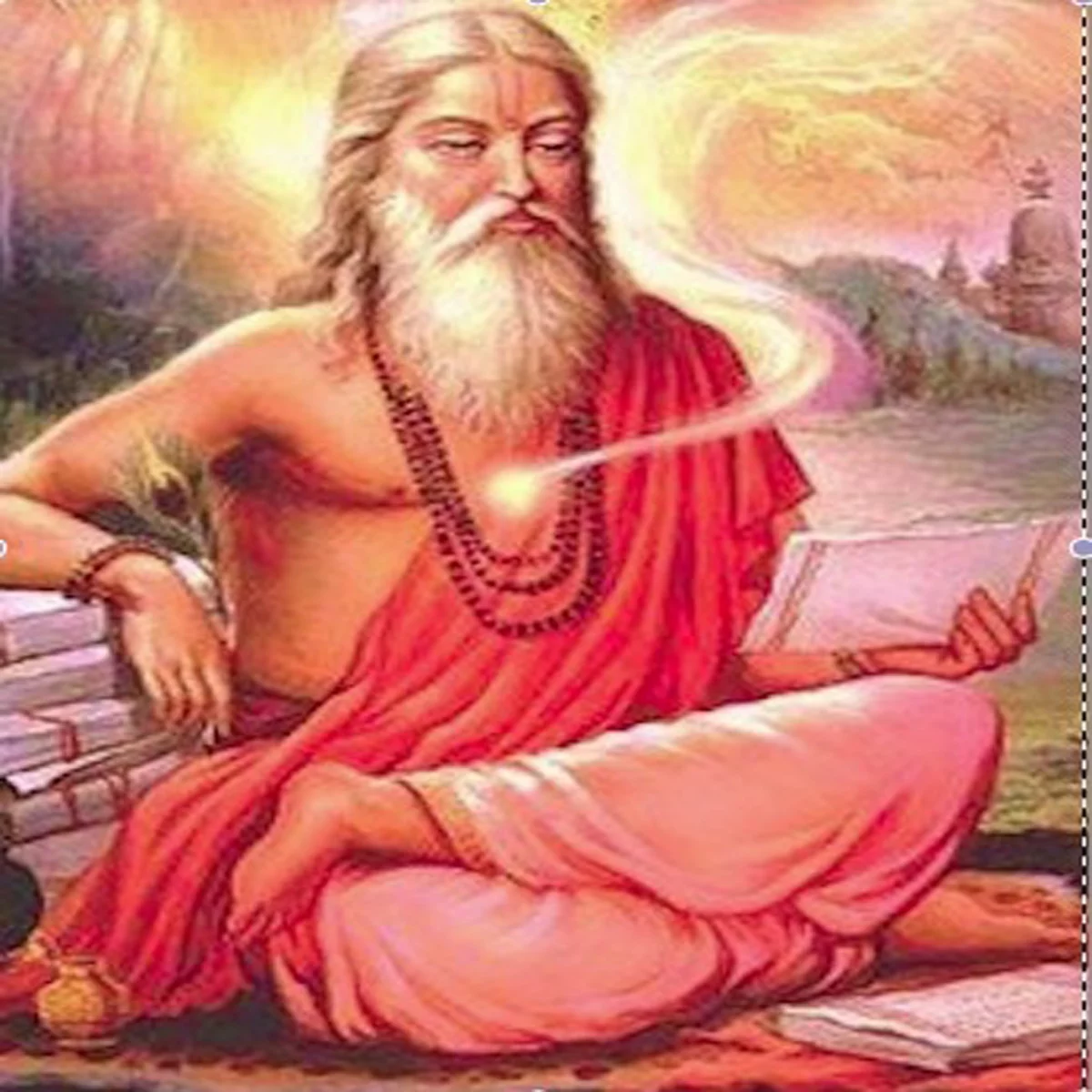
Angiras (अंगिरस्, pronounced as “əngirəs”; nominative singular Angirā – अंगिरा, pronounced as “əngirα:”) is a Vedic rishi (or sage) who, along with sage Atharvan, is credited to have formulated (“heard”) most of the fourth Veda called Atharvaveda. He is also mentioned in the other three Vedas. Sometimes he is reckoned as one of the Seven Great Sages, or saptarishis of the first Manvantara, with others being, Marichi, Atri, Pulaha, Kratu, Pulastya, and Vashishtha Bharadwaja maharshis was his descendant. .
His wife is Surūpa and his sons are Utatya, Samvartana and Brihaspati. He is a Manasaputra (wish-born-son) of Lord Brahma. Other accounts say that he married smrithy, the daughter of Daksha.[citation needed]
The name Angirasas is applied generically to several Puranic individuals and things; a class of Pitris, the ancestors of man according to Hindu Vedic writings, and probably descended from the sage Angiras. In the Rigveda, Agni is sometimes referred to as Angiras or as a descendant of Angiras (RV 1.1). In the Rigveda, Indra drives out cows from where they had been imprisoned by either a demon (Vala) or multiple demons (the Panis) and gifts them to the Angirasas (RV 3.31, 10.108 and a reference in 8.14). Mandala 6 of the Rigveda is attributed to a family of Angirasas.
Lord Buddha is said to be a descendant of Sage Angirasa in many Buddhist texts. Scholars like Dr. Eitel connects it to the Rishi Gautama. There too were Kshatiryas of other clans to whom members descend from Angirasa, to fulfill a childless king’s wish.
In Hindu mythology, Angirasa is the name of a group of ancient sages or rishis who are credited with composing a significant portion of the hymns in the Rigveda, one of the oldest sacred texts of Hinduism. The Angirasa rishis are considered to be a prominent lineage of seers and are associated with various hymns and rituals.
The term “Angirasa” is also used as an adjective, indicating a connection to the Angirasa lineage. Individuals or things associated with this lineage are sometimes referred to as “Angirasa.”
It’s important to note that within the vast and diverse body of Hindu mythology and scriptures, the mention of Angirasa can vary, and different texts may provide additional details about the lineage and contributions of these sages. The Rigveda, in particular, contains hymns attributed to the Angirasa rishis, and their significance extends throughout Hindu religious traditions.
